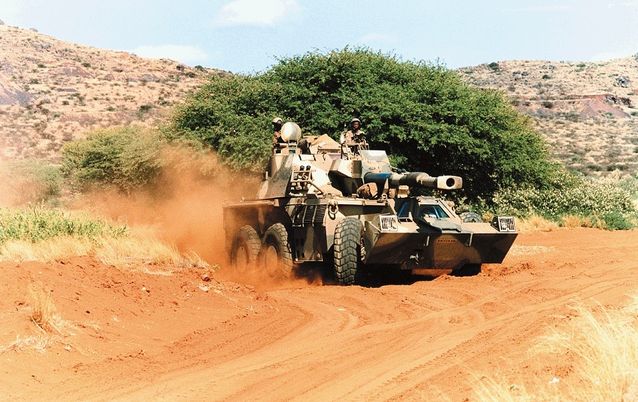The restructuring of Denel which will be implemented by 1 April, will allow the company to be more efficient and better placed to meet the demands of the current marketplace, interim CEO William Hlakoane said on 28 March during the opening day of Defence Services Asia (DSA) 2022 in Kuala Lumpur, Malaysia.
Revitalized Denel is looking at making its presence known in the Southeast Asian market after its restructuring process is completed, William Hlakoane said to Shephard Media during the DSA.
In the new business model, the company’s divisions will be converted to smaller business units to improve cost-efficiency and agility to better cope with current market conditions.
‘Basically, we are reducing the number of divisions’ and ‘making them smaller’ into two divisions: engineering and manufacturing,” William Hlakoane explained.
The restructuring and new strategy would boost its position and ensure it continues to be a significant part of the international defence market, argued Hlakoane, despite Denel facing substantial challenges.
‘We want the market to know that we are not out of business and done for, we’re here and focused and we intend to continue being a major presence in the global defence industry with the full support of our shareholder, the South African government,’ he asserted.
With the restructuring in place, Denel will focus on building strong partnerships overseas with industrial JVs and providing Denel’s research, technology, and skills to countries wanting to develop indigenous products.
The new strategy would ensure that new and existing customers will enjoy substantial local industry partnerships and become part of Denel’s supply chain.
‘Of course, we will have to assess the economies of scale and viability in this — in some cases, it will be more efficient for certain components to be manufactured in South Africa — but as a whole, we are committed to giving as much work as possible to the client in regard to the procurement,’ he said.
Hlakoane claimed that Denel’s strengths lie not only in its wide range of technologies, capabilities, and products but also in its willingness to share and transfer intellectual property to its partners with the minimum possible restrictions.
At the defence exhibition, Denel signed a Memorandum of Understanding with Malaysia’s defence company Deftech to explore potential areas for collaboration particularly in training, logistics, maintenance, and support for the T5-52 howitzer which has many commonalities with Denel 155mm G-5 howitzers currently in use by the Malaysian Army.
In this regard, Denel is looking to expand and increase its partnerships not only with Malaysia but also with other countries in the region.
Hlakoane believes that the current geopolitical climate could also play out in Denel’s favor, as South Africa’s position as a non-aligned country may make it a more viable source for defence procurement as customers would be unaffected by issues affecting China, Russia, the US, and other Western nations.
Non-aligned states must cooperate to ensure that their defence development, defence procurement, and supply chain are independent and unaffected by great power competition, he added.
On the homeward side, Parliament’s Joint Standing Committee on Defence (JSCD) is concerned that South African defence technology development could grind to a halt if Denel shuts down.
Denel is technically insolvent and facing a litany of troubles including insufficient finances to meet operational requirements, such as the payment of salaries and suppliers, at the end of December 2021, Denel owed R789 million to employees and R900 million to suppliers, Public Enterprises Minister Pravin Gordhan revealed this to Parliament’s Joint Standing Committee on Defence (JSCD) on 24 February.
However, nearly R1 billion was recently made available to Denel to meet its various obligations such as paying taxes, as previous bailouts, from the government, have gone to servicing debt.
